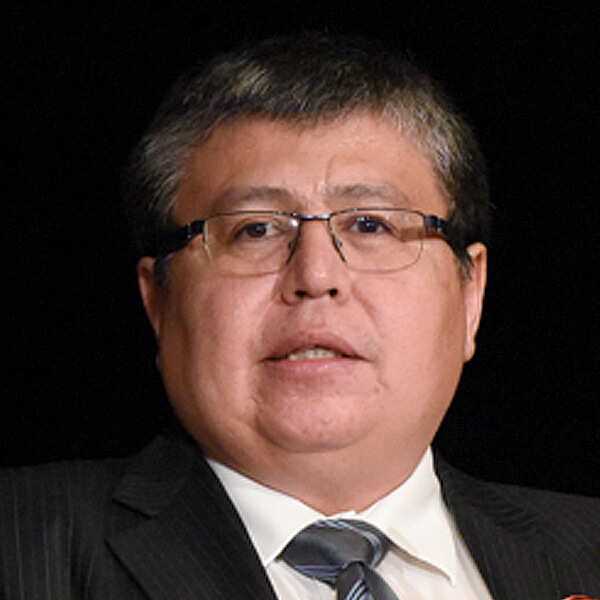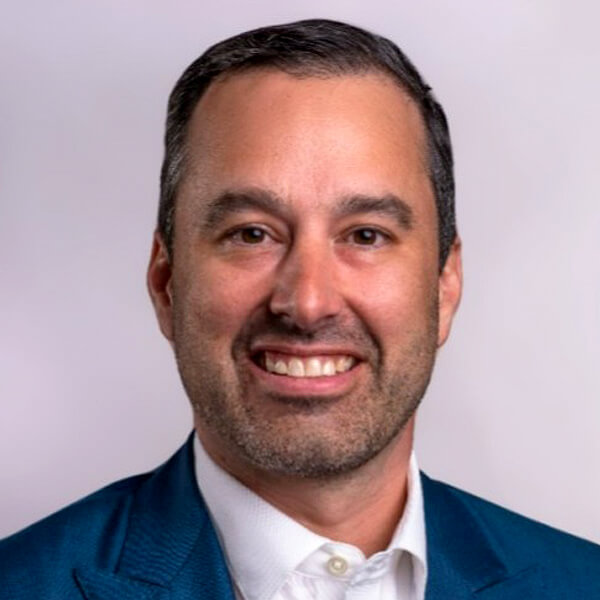
We are unique in the Canadian landscape.
We approach our work with a dedication to independence and neutrality. Our choice of research is driven by the needs of Canada’s leaders and not by personal or political interests or ideology. Our relationships with leaders are anchored on their trust in the validity and objectivity of our analyses and insights.

How we make an impact
To ensure that our work matters, we:

Focus on relevant issues by researching the Wicked Problems Canada faces and convening around these most pressing and complex problems challenging our leaders.

Ground our work in the realities of politics, business practices, and systems change—so that our recommendations are applicable, and create momentum for change.

Involve key thought leaders and practitioners in the design and delivery of our content to ensure it is focused on relevant questions and provides meaningful solutions.

Provide meaningful and actionable recommendations for leaders, based on the evidence we generate.
Research outputs
142
Issue briefings
140
Online experiences
63
Impact papers
11
Data briefings
5
Summaries for executives
4
Brochures or posters
2
Primers
2
Toolkits
CBoC makes an impact when Canada’s leaders are aware of our work, value our research and expertise, and act on our insights.
Trust is our most important asset

The rise of generative artificial intelligence has drawn sharp focus on the importance of depth and perspective in creating actionable insights. It has also highlighted the risks inherent when it becomes increasingly difficult to determine what is real.
The Conference Board is working to leverage the potential of these tools. But these tools only reinforce the increasingly critical role knowledge and expertise will play today and tomorrow. We observe the erosion of other pillars of evidence and discussion in our society with great concern. In a society that has become increasingly polarized and where generative AI runs the risk of further eroding peoples’ barometer for the truth, our position as a trusted voice of independent evidence-based guidance is of the utmost importance.
Engagement, connections, and participation
1.9M
Page views on our website
6.2M
In social reach
43.1K
Research contributors and event participants
18.6K
Listens to our podcast episodes
14.3K
Broadcast and media articles
994
Meetings with external stakeholders
Top 10 digital subscription outputs
- Compensation Planning Outlook 2023
- Canadian Human Resources Benchmarking: Turnover—June 2022
- Rising Rates Hit Home: Provincial Three-Year Outlook—August 2022
- Renewed Interest: Canada’s Two-Year Outlook—July 2022
- Rising Prices and Falling Dominoes: Provincial Two-Year Outlook—May 2022
- Shocks and Struts: Canada’s Three-Year Outlook—October 2022
- Turbulence Ahead: Provincial Three-Year Outlook—December 2022
- Canadian Human Resources Benchmarking: Recruitment and Selection
- Coming Out of the Fog: Provincial Three-Year Outlook—February 2023
- Preparing for an Impending Employee Exodus: Increased Turnover and Retirement Risk Necessitate Succession Planning
Top 10 free outputs
- Employability Skills—Toolkit and Poster
- Neurodiversity Research—Breaking Down Barriers: Building Workplaces Where Neurodivergent Workers Thrive, and Brick by Brick: Building Neuroinclusive Workplaces
- Indigenous Ownership: Best Practices for Major Project Success
- Future-Proofing Investments in Workplace Mental Health: Meeting Employees’ Evolving Needs
- The “Canadian Experience” Disconnect: Immigrant Selection, Economic Settlement, and Hiring
- Digital Occupation Pathways: From Vulnerable Jobs to Rapid-Growth Careers
- Building a Digitally Skilled Workforce: Insights From Canadian Employers and Skills Leaders
- Pandemic, Inflation, and War: Assessing the Risk of Recession for Canada
- Blue Occupation Pathways: Career Transitions to the Sustainable Blue Economy
- From Student to Immigrant? Multi-step Pathways to Permanent Residence

How we measure the degree to which our work is valued
We have influence when leaders who are aware of our work seek us out or agree to collaborate with us.
The degree to which our work and expertise are valued is reflected in the invitations we receive to share our insights, the frequency with which our work is referenced, and the calibre of the organizations and individuals who are willing to partner with us and lend us their voice.
114
Public speaking engagements for CBoC staff.
9
Presentations to government committees,
participation in official government consultations and presentations to government ministers.
490+
Instances of CBoC research being cited in government or political statements, speeches, academic journals, or industry documents.
How we measure the degree to which our work has resulted in positive change
Making an impact is a journey composed of many small steps to build understanding that the Wicked Problems facing our country have solutions. Through our work, we seek to bring about positive change.
The journey of impact culminates when leaders place such a high value on our insights that they are persuaded to take action. These actions result in new or adjusted policies and practices that provide social, environmental, and economic benefits to Canadians.

Impact in action
Through our impact key performance indicators, we track our organization’s steps on the journey to change. Our awareness and value indicators demonstrate how our research and expertise are being received outside of our organization.
Our impact in action narratives show how leaders are implementing changes based on our insights.

Leaders learning from leaders
The Conference Board of Canada’s executive council line of business
The Conference Board of Canada’s executive councils are confidential, closed-door settings that deliver connections with peers from the public and private sectors, as well as academics and not-for-profit leaders. They help leaders deliberately build their strategic networks and create opportunities to engage with thought leaders and learn from peers. We are proud that 48 per cent of our council members are vice-presidents and up, and an additional 35 per cent are directors. As leaders in their organizations, council members tell us how they act on the insights from the council to influence the direction of their organizations or help inform the policy choices being made by governments at all levels.
Not only are the conversations among peers unparalleled in Canada, we also bring some of the best thought leaders in the world to our council meetings. Speakers at our council meetings this year have included:
- Hamza Khan, best-selling author and world-renowned leadership and workplace keynote speaker
- Randy Pettipas, CEO, Global Public Affairs
- David Weiss, President and CEO, Weiss International Ltd.
- Ibrahim Gedeon, Chief Technology Officer, TELUS
- Suzanna Morris, Vice-President, Customer Data, Analytics and Loyalty, Indigo
- Susan Blum, AVP Applied Research and Innovation, Saskatchewan Polytechnic
- Jason Murray, President and Managing Partner, BIPOC Executive Search
What we’ve heard from our council members

Lyne Brun
Supervisor, Health & Wellness, Nova Scotia Power Inc.
“Being part of the Council [on Workplace Health and Wellness] has been an incredibly valuable resource in helping us shape overall wellness for our employees. The Council meetings provide a wealth of information from other like-minded employers, in a setting that is collaborative, informative, and engaging. Being able to tap into evidence-based research, webinars, and information requests is a huge benefit of being on the Council. The quality of information is second to none, and it helps us make strong decisions around implementing effective programs and services for our employees.”

Justin Huston
Deputy Minister, Department of Communities, Culture, Tourism and Heritage, and CEO, Nova Scotia Office of L’nu Affairs
“The Corporate–Indigenous Relations Council is one of the best forums I have had the opportunity to participate in, and it provides a lot of value to my organization. The meetings provide a unique opportunity to thoughtfully and candidly discuss cutting-edge ideas and practical issues with business, government, and Indigenous leaders from across the country.”

Patricia Hawkins
Strategy, Partnerships, & Innovation Services, Myant Research Centre of Canada
“The Council for Innovation and Commercialization provides an outstanding forum for networking with experts in technology and innovation. The thought-provoking seminars and discussions provide a wealth of ideas that can be applied within your own industry.”

Neurodiversity
We have a long way to go to create workplaces that embrace neurodivergent Canadians and get the best out of them. That is the conclusion of a series of research studies we conducted on how employers can better support these individuals. Our research series has resulted in the publication of three research outputs aimed at helping organizations who want to create more inclusive workplaces. The outputs are:
- Building Workplaces Where Neurodivergent Workers Thrive, November 2022
- Breaking Down Barriers: Improving the Workplace Experience for Neurodivergent Canadians, March 2023
- Brick by Brick: Building Neuroinclusive Workplaces, March 2023, a two-page summary for executives detailing best practices
Despite the many benefits of a neurodiverse workplace, neurodivergent individuals encounter barriers to employment and career progression. For example, only 33 per cent of adults on the Autism spectrum were employed in 2017, compared with 79 per cent of adults with no disability. This gap alone is estimated to cost the Canadian economy anywhere from $6 billion to $11 billion annually.
What employers can do
To help neurodivergent individuals thrive we recommend: employers implement companywide awareness training on neurodiversity, put in place alternative hiring processes, improve the processes in place to access accommodation for all individuals, adopt a people-first management style, and work to create community for neurodivergent workers.
In FY2023, we presented this work to audiences of over 900 attendees at the following events:
- Borden Ladner Gervais LLP Professionalism Series (Panel discussion on neurodiversity in the workplace)
- CIWE Roundtable on Neurodiversity in the Workplace
- OPS Leadership Network (OLN): Building an OPS Where Neurodivergent Workers Thrive
- Work Wellness Institute Webinar on Neurodiversity in the Workplace
- Human Capital Councils Webinar: Building Workplace Where Neurodivergent Workers Thrive
- OPS Cabinet Office Speaker Series: Building an OPS Where Neurodivergent Workers Thrive
- Canadian Museum for Human Rights Education Friday: Building Workplaces Where Neurodivergent Workers Thrive
This research is raising awareness for Canadian employers of the need to create workplaces where neurodivergent individuals can thrive. We look forward to continuing to advance the discussion and inclusion of neurodivergent workers in coming years.
What Is Neurodiversity?
The term neurodiversity was coined in 1998 by sociologist Judy Singer and refers to neurological variations in how some people naturally think, understand information, interact, and communicate with others. Many different types of people fall under the neurodiversity umbrella, including those who identify with autism spectrum disorder (ASD), attention deficit hyperactivity disorder (ADHD), dyscalculia, dyslexia, dyspraxia, and Tourette syndrome as well as certain mental health conditions such as anxiety, depression, and obsessive-compulsive disorder (OCD). Given that neurodiversity encompasses many different types of conditions, not all neurodivergent individuals will present in the same way or have the same support needs.
This concept is only starting to become understood in Canadian workplaces. We found that more than half of the workers and employers (both neurodivergent and neurotypical) we surveyed had become aware of the term only within the past five years.

OpportuNext
OpportuNext was created to solve a major challenge facing Canadian students and workers—knowing what jobs will be available in the future and how to build a future-proof career. With the rise of automation and artificial intelligence, many Canadians are asking, “Are the skills I have currently transferable to a new career if my job disappears?” OpportuNext answers that question and helps Canadians identify where their next opportunity might arise.
To achieve this, OpportuNext draws on four massive data sources comprising 13 billion data points to allow users to explore over 30,0000 career opportunities.
Data for occupation attributes like skills, abilities, knowledge, work activities, tools, training, and education are sourced from O*NET and Vicinity Jobs databases. Salary information is sourced from Statistics Canada’s Canadian Labour Force Survey (LFS). Employment growth prospects are based on data from the Model of Occupations, Skills, and Technology (MOST), and from an occupational forecast produced by Employment and Social Development Canada.
Since its launch in April 2021, thousands of Canadians and their employers have accessed OpportuNext to “see where your skills can take you.” This free-to-use tool was created with support from the Future Skills Centre. Users enter basic information, such as their job title, and OpportuNext identifies options using our proprietary database. The tool identifies careers that require similar skills, abilities, and experience along with job salary and career outlook information. It can identify emerging transition careers and options that may not have been considered previously.
OpportuNext by the numbers
4
Massive data sources
13B+
Data points
30K+
Careers to explore
Infinite
Custom applications

The Canadian Centre for the Innovation Economy
In fiscal year 2023, The Conference Board partnered with North America’s largest urban innovation hub, the MaRS Discovery District, to launch a national research centre to examine and develop solutions to one of Canada’s greatest innovation challenges—the failure to turn our strong research and development into commercial success.
Despite having a highly educated workforce and strong research capability, Canada repeatedly fails to turn these advantages into commercial success and innovation-based economic growth. This powerful partnership with MaRS will help drive research into concrete actions that support Canadian entrepreneurs and innovators.
The Canadian Centre for the Innovation Economy (CCIE) brings together Canadian innovation hubs, institutions, entrepreneurs, governments, corporate partners, and investors to research critical issues facing the innovation community and deliver data-driven insights to decision-makers. This research and the partners and venture funders who are members of the Centre will change the Canadian innovation landscape for the better.
Our research reveals ways Canada can enhance its productivity and global competitiveness through innovation. In collaboration with MaRS, we focus on how we can accelerate technology adoption and the scaling-up of Canadian businesses. Additionally, we analyze the implications of technological advancements on the future of work. Key focus areas include benchmarking Canada’s innovation performance, assessing the state of innovation ecosystems, and recommending ways to leverage the key drivers of commercialization, entrepreneurship, and corporate innovation to accelerate Canada’s innovation ecosystem. Canada needs new approaches to address our underperforming innovation across all sectors of the economy. The CCIE is our response to that challenge.

Yung Wu
CEO, MaRS
“CCIE brings together innovators, entrepreneurs, government, and investors to deliver deep research insights on critical issues facing the innovation community. Canada needs this now.”

Indigenous ownership in major projects
We are on the precipice of a major change in the economic relationship with Indigenous nations and Canada. Indigenous communities’ equity ownership in major projects stands to drastically reshape how they pursue self-determination and financial independence. To achieve these benefits, we need to better support equity ownership and engage in an honest appraisal of the lingering harms many major projects have caused for Indigenous communities.
Our research series on Indigenous ownership is contributing to dialogue and action on Indigenous participation in three key ways:
- We are showing that these projects can be a win-win-win situation for all involved—when done right.
- We are shedding light on how to start building effective relationships by road-mapping positive experiences and requirements.
- We are seeing some of our recommendations being taken up by others in the sector—such as the growing support for a national loan guarantee program to support Indigenous ownership of major projects.
In fiscal year 2023, we have been invited to share the results of this research with audiences of over 600 representatives from industry, government, and communities at forums hosted by:
- Institute of Public Administration of Canada
- Linkages: Northern Manitoba and the World Conference
- Invest in Canada
- Federal Economic Development Agency for Northern Ontario
- The Mining Association of Canada
- AFOA Canada
Indigenous peoples are forging a new economic future that stands in stark contrast with major project failures of the past. Our work is being recognized for its contributions to changing economic relationships for Indigenous nations.
Read the research:
What we’ve heard

Terry Goodtrack
President and CEO, AFOA Canada
“When you look at the take-aways from this research, the thing that really resonated with me is the link between self-determination and financial independence. This move for more equity participation in major projects allows for that to happen. Communities can have the economic freedom to make their choices on improving socio-economic outcomes.”

Stephen Lidington
VP, Infrastructure Advisory, Colliers Project Leaders Canada
“Really pleased with the outcome of this analysis by The Conference Board of Canada. It’s timely, it’s relevant, it’s germane to improving outcomes for Indigenous peoples. In the current environment of pursuing reconciliation in its different forms, this is demonstrative of how many communities are benefiting right now from a form of economic reconciliation.”
Where leaders turn when faced with Canada’s toughest problems.

inFact Subscriptions
Discover how a subscription to inFact can empower your organization to take on complexity with confidence.

Executive Councils
Connect with peers from the public and private sectors, as well as academia and not-for-profit, and build your strategic network.

Research Centres
Dedicated to furthering knowledge and discourse about some of Canada’s toughest challenges and greatest opportunities, our research centres enable us to develop and disseminate research that informs decision-making.



